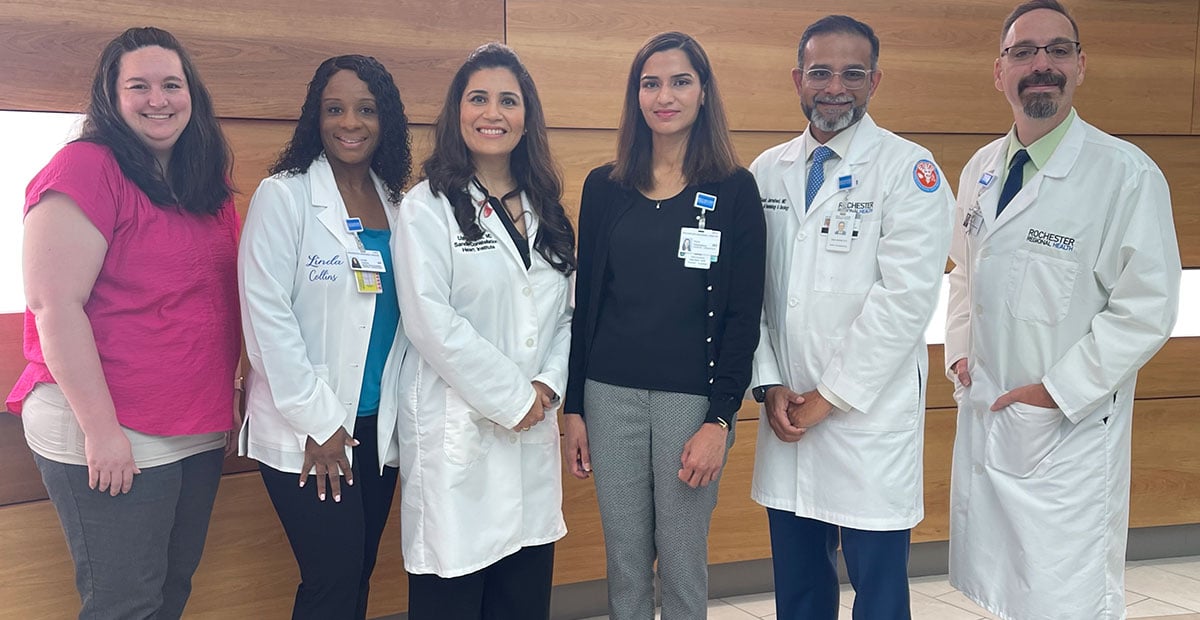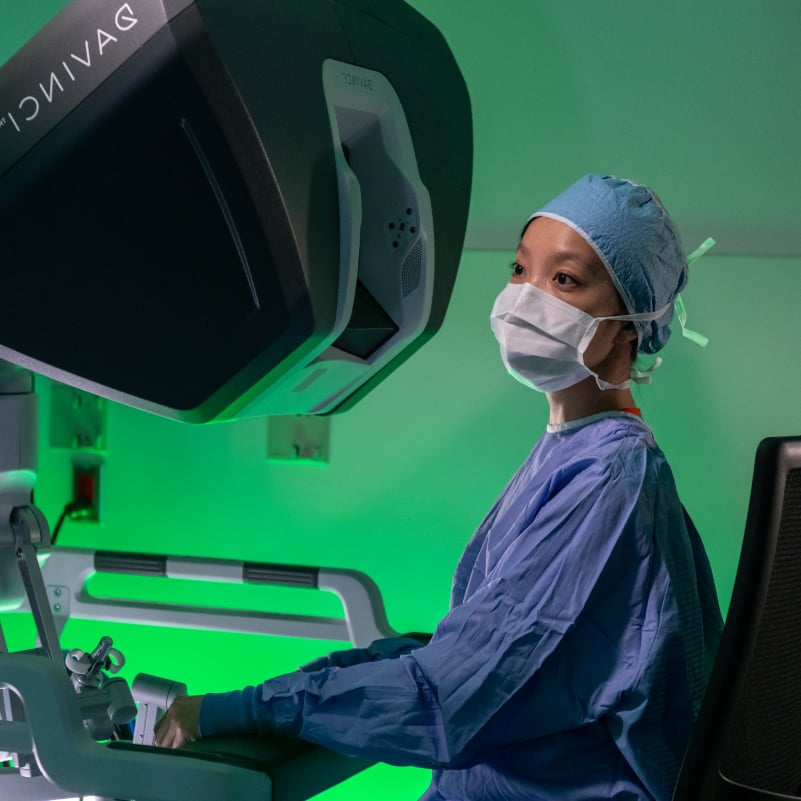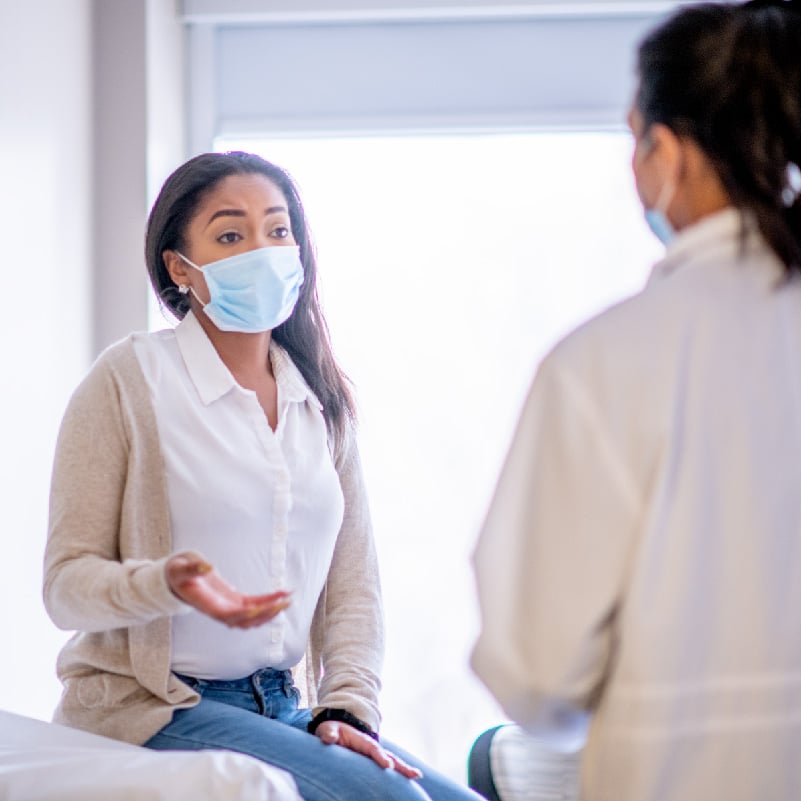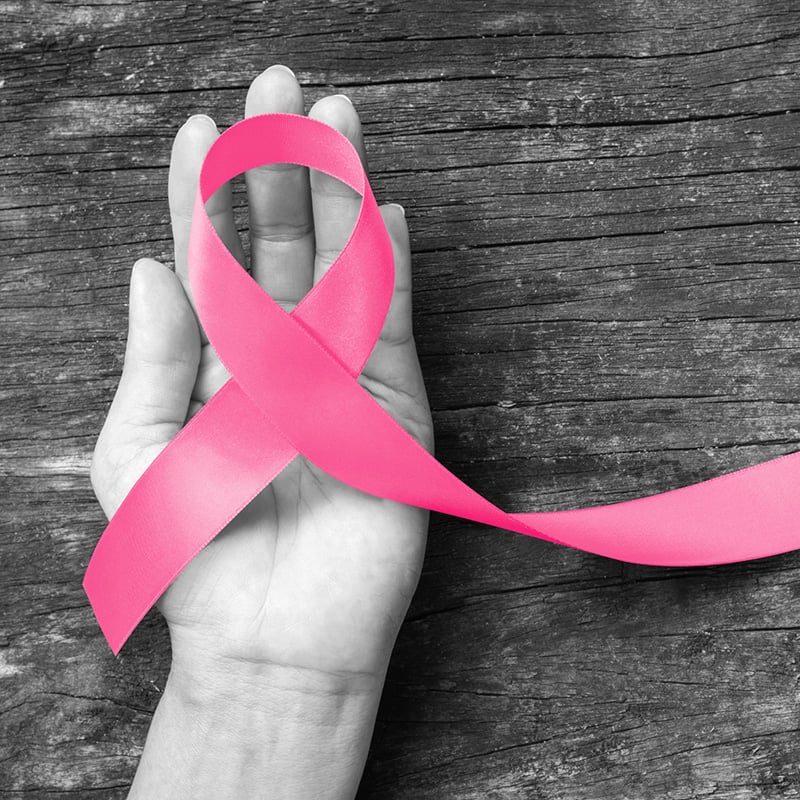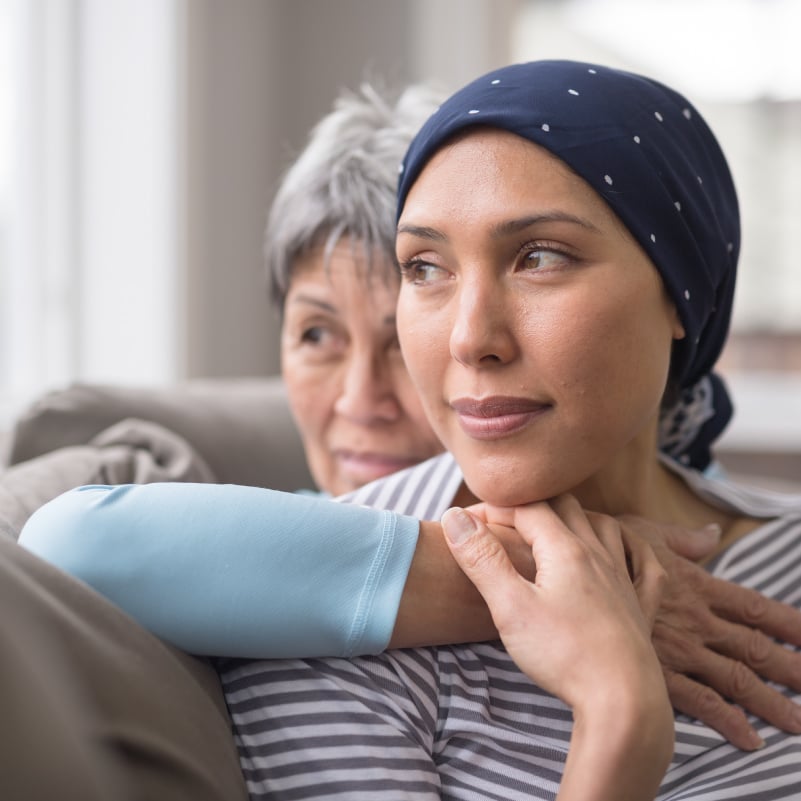When a patient is first diagnosed with cancer, most – if not all – of their physical and emotional energy becomes devoted to treating the disease.
Over the course of cancer treatment, however, some patients find themselves at risk for developing heart health issues for a variety of reasons. With these risks in mind, Rochester Regional Health operates its Cardio-Oncology Program – led by Uzma Iqbal, MD. The program seeks to identify, treat, and prevent heart health conditions for patients being treated for cancer.
This year, the International Cardio-Oncology Society (ICOS) designated Sands-Constellation Heart Institute’s Cardio Oncology Program as a Center for Excellence.
Becoming a Center of Excellence
In 2019, Dr. Iqbal began collaborating with Lori Medeiros, MD, at the Rochester Regional Health Breast Center of Excellence and Saad Jamshed, MD, with Lipson Cancer Institute at Rochester Regional Health to provide a comprehensive treatment approach for cancer patients who were receiving therapies that put their heart at risk for damage.
Out of this collaboration, the Cardio-Oncology Program was created with the purpose of ensuring each patient would safely finish their chemotherapy treatment while keeping their heart healthy.
“There was a need that was not yet fulfilled, so we came together and created a team to help meet that need,” said Dr. Iqbal, who serves as director of the Cardio-Oncology Program and a clinical cardiologist with Rochester Regional Health’s Sands-Constellation Center for Critical Care.
As word spread and more patients began to join, the Cardio-Oncology Program team applied for status as an ICOS Center of Excellence. To achieve the designation, the program went through a rigorous evaluation process based upon standards including demonstrated expertise, clinical volume, research productivity, educational initiatives, multidisciplinary collaboration, and patient-centered care.
In May 2023, the Sands-Constellation Heart Institute received word that the Cardio-Oncology Program had been awarded a Silver designation as an ICOS Center of Excellence.
Patient eligibility & risk assessment
If a patient is already being treated for a heart condition, is considered to be at a higher risk of developing heart damage from their cancer treatment, or starts experiencing heart-related symptoms in the middle of treatment, they will automatically be referred to the Cardio-Oncology Program.
Symptoms of heart concerns for cancer patients might include:
- chest pain
- fatigue
- fluid build-up (edema)
- palpitations
- shortness of breath during regular activities
- weight gain
Certain risk factors may increase the likelihood of cardiac complications due to chemotherapy and radiation therapy, such as:
- age
- cholesterol
- diabetes
- heart disease
- high blood pressure
- patients being treated for a recurrence
- smoking
“Chemotherapy and radiation therapy can make it challenging to determine whether a heart issue is happening because of the cancer treatment or if a patient’s heart has an existing issue,” Dr. Iqbal said. “This is why an initial risk assessment is important. If we know a patient faces higher risks, we will adjust their treatment plan to compensate accordingly.”
What patients can expect
Most patients who arrive at an appointment with the Cardio-Oncology Program are swirling in a sea of information about treatment schedules, setting up their next appointment, and much more. Often, Dr. Iqbal said, their first question is, Why am I at this appointment?
To keep everything as simple as possible, patients are given an ‘ABCDE’ summary of what their individualized heart care plan will address. ABCDE stands for:
Awareness of what will their treatment be
Blood pressure numbers – what they should be below
Cholesterol number – where patients should aim
Diet and diabetes addressing best options for nutrition
Exercise gives them more control over their physical activity
Patients will have an assessment performed at the first appointment, and work with their team to put a plan together.
If a patient has no prior heart issues and undergoes chemotherapy, the chances are good that chemotherapy will not have a significant impact on their heart health. However, if a patient is already experiencing heart issues, chemotherapy and other cardio-toxic therapies have a greater chance of making those issues worse.
The Cardio-Oncology team works alongside every patient and their cancer treatment team to ensure they can finish their cancer treatment without any heart issues getting in the way.
“The Center of Excellence designation helps us move one step forward to being able to care for more people in the Rochester area,” Dr. Iqbal said. “We are proud of what we have done and hope it helps us to continue to move ahead in the field of cardiac oncology.”

